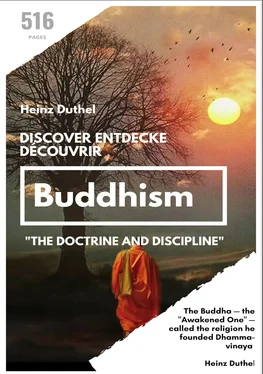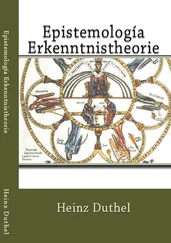Giving of any kind is unquestionably good. The Buddha encourages us to give generously whenever anyone asks for help [Dhp 224]. And even the smallest of gifts, when offered with a generous heart, has tremendous value: "Even if a person throws the rinsings of a bowl or a cup into a village pool or pond, thinking, 'May whatever animals live here feed on this,' that would be a source of merit" [AN 3.57]. But the actual rewards of giving depend strongly on the climate in which the giving occurs. The giver and the recipient — the donor and the organization — share an equal responsibility in fostering a climate that makes the most of generosity. If both are serious about putting the Buddha's teachings into practice, they would do well to consider the following points:
First, the benefits of giving multiply in accordance with the purity of the giver's motives. A gift we give half-heartedly yields modest rewards for all concerned, whereas a gift given with genuine open-handedness, "not seeking [our] own profit, not with a mind attached [to the reward]," is of far greater value [AN 7.49]. If we give with an expectation of receiving something from the recipient in return — membership benefits, a certificate of appreciation, a book, a meditation course, etc. — we shortchange ourselves, and dilute the power of our generosity. Buddhist organizations should therefore be cautious about rewarding gifts with these sorts of perquisites.
Second, the Buddha does not encourage us to ask for gifts. In fact, he says quite the opposite: he encourages us to make do with what little we already have [AN 4.28]. This theme of contentment-with-little echoes throughout the Buddha's teachings. To my mind, a fundraiser's long "wish list" of needed items conveys a sense of dissatisfaction, and thus seems at odds with this message. Donors most enjoy giving when they know that their gift — no matter how humble it may be — is truly appreciated by the recipient. If I have only a small gift to give, I wonder if it will be appreciated — or even noticed — by an organization with ambitious fundraising goals or a long and expensive list of needs. An organization can promote the Buddha's teachings most effectively, and inspire the greatest confidence among its supporters, by keeping its needs modest and its requests rare.
Third, the purity of the recipient also matters [SN 3.24]. When we give to virtuous people — those who, at the very least, abide by the five precepts — we not only acknowledge their intention to develop virtue (sila), but we also reinforce our own resolve. Giving to virtuous people is thus a powerful kammic force whose benefits extend far beyond the moment of giving itself. Generosity and virtue are deeply intertwined; when we learn to exercise our generous impulses skillfully, and give where the gift reaps the greatest fruit, we make the most of them both. Whether we are giver or recipient, we stand to benefit most from generosity when we take virtue seriously.
Finally, an appeal to fledgling Buddhist groups and organizations: please be very, very patient, and resist the temptation to make your organization grow. The success of a Buddhist organization should never be measured in conventional commercial terms: number of members, number of downloads, number of courses taught, amount of money raised, etc. Its success can only be measured by how well it embodies the Buddha's teachings. If it does good work that is rooted firmly in the principles of virtue, people who recognize virtue when they see it will inevitably take notice and be inspired to lend a hand with unbounded generosity. Any organization that can do this much passes on to others, in the most direct way possible, the priceless tradition of generosity, which is the heart and soul of Dhamma — the greatest gift of all [Dhp 354].
See also:
* "The Economy of Gifts," by Thanissaro Bhikkhu
* "Freedom to Give," by Thanissaro Bhikkhu
* "Generosity" in the Path to Freedom pages.
* Is there anything wrong with selling Dhamma books?
Is there anything wrong with selling Dhamma books?
What's the big deal about giving them away free of charge?
There's nothing inherently wrong with selling Dhamma books. Indeed, many commercial publishers provide a valuable service by producing high-quality Dhamma books that are easier to find in bookstores than their free, privately printed cousins. But that accessibility comes at a steep price. A commercial publisher that lives by its bottom line is inevitably forced to make editorial choices based on what will or will not sell books. The result of this pressure is often a book that presents a watered-down version of Dhamma, a Dhamma that may sound joyous, uplifting, and pleasing, but which lacks the cutting edge of truth. It is unlikely, for example, that people would flock to the bookstore and empty their wallets to read about the Buddha's crucial teachings on renunciation, the drawbacks of sensuality, or the value of reflecting on the unattractiveness of the body. The market for people willing to spend money on this kind of truth is, alas, unprofitably small.
But there is another, deeper reason to think twice about selling Dhamma books. Since the Buddha's time, the teachings have traditionally been given away free of charge, passing freely from teacher to student, from friend to friend. The teachings are regarded as priceless, and have been conveyed to us across the centuries by an unbroken stream of generosity — the very foundation of all the Buddha's teachings. That tradition continues with the production of free Dhamma books. From the author, the stream flows onwards through those who give their time to editing, typesetting, and printing the book; through the donors who sponsor the printing; and through those who take care of distribution and mailing. If you are fortunate enough to receive a book borne on this stream of generosity, you learn an important lesson of Dhamma long before you even open the cover. The instant someone puts a price tag on a Dhamma book, you not only have to pay money for it, but you get a little bit less in return: you get a book that is merely about Dhamma, instead of one that is itself an example of Dhamma in action. Which one do you think has greater value?
So keep this in mind the next time you find yourself spending money in exchange for the Dhamma — whether it is in the form of a book, an audio tape, a CD-ROM, a Dhamma talk, a meditation class, a retreat. The old adage still applies: caveat emptor — Let the buyer beware.
The Buddha and His Dhamma
by
Bhikkhu Bodhi
Buddhism originated with an Indian prince known as the Buddha, who taught in Northeast India in the fifth century BC. Two centuries later, with the support of the Emperor Asoka, Buddhism spread over the greater part of India and from there traveled the full breadth of the Asian continent. In several tidal waves of missionary zeal it rose up from its Indian homeland and inundated other regions, offering the peoples among whom it took root a solid foundation of faith and wisdom upon which to build their lives and a source of inspiration towards which to direct their hopes. At different points in history Buddhism has commanded followings in countries as diverse geographically, ethnically, and culturally as Afghanistan and Japan, Siberia and Cambodia, Korea and Sri Lanka; yet all have looked towards the same Indian sage as their master.
Though for historical reasons Buddhism eventually disappeared from India by about the twelfth century, before it vanished it had profoundly transformed Hinduism. In our own time Indian thinkers as different as Swami Vivekananda, Tagore, Gandhi, and Nehru have looked upon the Buddha as a model. In the twentieth century, too, while Buddhism has lost much of its following in the East, it has begun to have a growing impact on an increasing number of people in the West, and in its own quiet way it is sending down firm roots in several countries of the Western hemisphere.
Читать дальше












